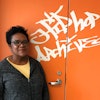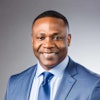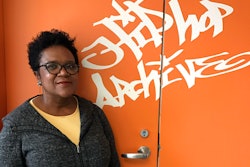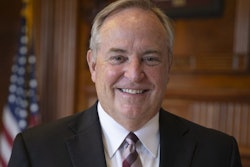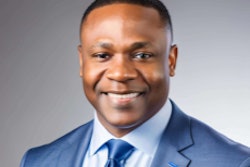ATLANTA
Historically Black colleges and universities, which for decades have been educating students who can’t afford to go — or can’t imagine going — elsewhere, have been particularly challenged by the nation’s economic meltdown.
Enrollments at the schools have declined, and at the same time endowments have dropped and fundraising sources have dried up. The same is true at most universities, but often students at HBCUs need more aid to stay on course.
“What’s most difficult for our institutions is that they are tuition-driven,” said Dr. Michael Lomax, president of the United Negro College Fund. “They don’t have large endowments, and even the ones who do, have seen a large reduction in the value of those endowments.”
Most colleges are dealing with economic problems. One recently released survey on 791 American public and private colleges reported that endowments fell 3 percent in the fiscal year ending June 30, and a smaller group estimated a 23 percent drop in the first five months of fiscal year 2009, which began in July. The numbers represent a decline nearly double that of any full-year return since such figures were first tracked in 1974.
Only three Black colleges — Howard University in Washington, D.C., Spelman College in Atlanta and Hampton University in Virginia — had endowments among the top 300 included in the survey. Most lack the resources and strength in alumni giving of their mainstream counterparts.
Most students at the colleges combine grants and loans to fund their educations, Lomax said. Just a small percentage get help from their parents, and others work retail or fast food jobs to make tuition.
An Associated Press analysis showed that 62 percent of students at 83 four-year HBCUs receive Pell Grants. More than 90 percent of those recipients come from families earning less than $40,000 a year.
Lomax expects HBCUs to survive, but they may have to make some painful choices to do it.
“These are institutions that have made it through the Great Depression and other cyclical downturns,” he said. “What we’re doing is counseling schools to tighten their belts as much as possible.”
That has Adrianna Ebron, a Spelman sophomore from Baltimore, reconsidering the strategy for her studies.
Spelman recently announced it is phasing out its department of education in favor of a shared teacher certification program based at Clark Atlanta University that will also include Morehouse College. All three are part of the Atlanta University Center, which recently announced cost-cutting measures that will include sacrificing people and programs.
Ebron is majoring in history but was attracted to Spelman’s education department, which has long been a part of its legacy.
Until this week, her minor was secondary education — with a goal to teach history — but she now plans to postpone her teacher certification until graduate school because for her, taking classes at Clark Atlanta isn’t an option.
“It just messes up my whole plan for my education here,” Ebron said. “In all honesty, Clark’s ranking as far as their curriculum and quality of education … it’s just not Spelman’s education.”
Other cost-cutting measures at Spelman include eliminating 35 positions and closing campus for the week after graduation in May. Clark Atlanta cut 100 workers and canceled its physical education classes last week after a drop in spring enrollment. At Morehouse, 25 adjunct professors, a third of the school’s part-time instructors, were released.
Morehouse President Robert Franklin said the institution began bracing for the worst months ahead of the current climate.
“The only question at the time was the magnitude of decline in enrollment, endowment and fundraising,” he said.
At Morehouse, enrollment is down 8 percent from last year and the school’s endowment is down to about $110 million from a high of $150 million.
Dabney Zanders, a senior finance major at Morehouse from Richmond, Va., blames more than the economy for the school’s situation.
“It’s a little bit of a letdown that we get a month into the semester and all three of the schools in the Atlanta University Center are in the same predicament,” he said. “You’d think they’d have an idea of how much money they’d need to have coming in to keep the wheels turning.”
More than 80 percent of Morehouse’s revenue is derived from student payments, including tuition, fees and room and board, Franklin said. Though the school is one of a handful of historically Black colleges with an endowment of more than $100 million, it has been modest about spending the money.
Fundraising has been tough, especially from corporate and high-profile donors, Franklin said. As a result, Morehouse is considering postponing a scheduled 2010 capital campaign for a year.
A bright spot has emerged among the bad news at Morehouse: An increase in alumni donors, especially first-time givers.
“They feel a greater responsibility for the health of the college,” said Franklin.
Similarly, Spelman has seen 1,000 more donors, a 67 percent increase in alumnae giving and a 250 percent increase in giving from parents. However, in both cases, while the donors have increased, the gifts have been smaller, said spokeswoman Angela Johnson.
Spelman’s endowment, at $340 million, is among the largest of historically Black colleges, but its coffers took a 20 percent hit in the stock market and the women’s college now has a projected budget deficit of $4.8 million. In the spring, 83 fewer students returned to campus.
Zanders, 21, is set to graduate in May from Morehouse and said he is not so concerned for his own future as those of the students coming behind him.
“They’re just spread very thin,” he said. “At a certain point you have to wonder, when is my education starting to fall off?”
On the Net:
- Clark Atlanta University: http://www.cau.edu
- Morehouse College: http://www.morehouse.edu
- Spelman College: https://www.spelman.edu/
Email the editor: editor@diverseeducation.com
Click here to post and read comments
© Copyright 2005 by DiverseEducation.com

